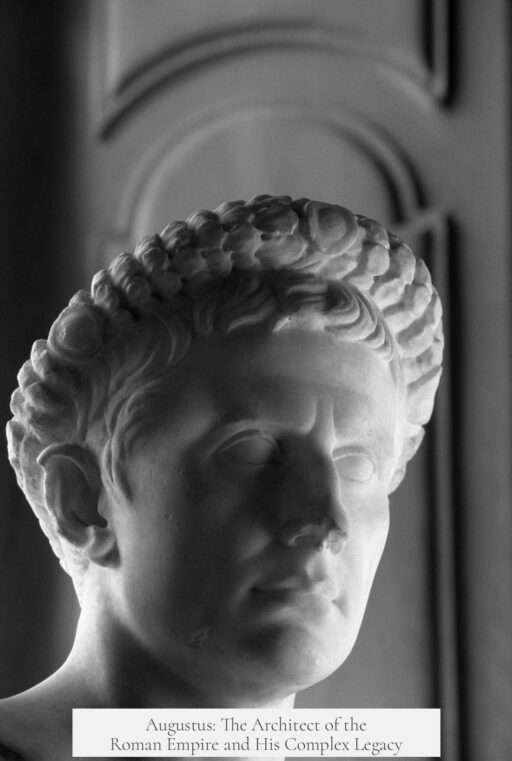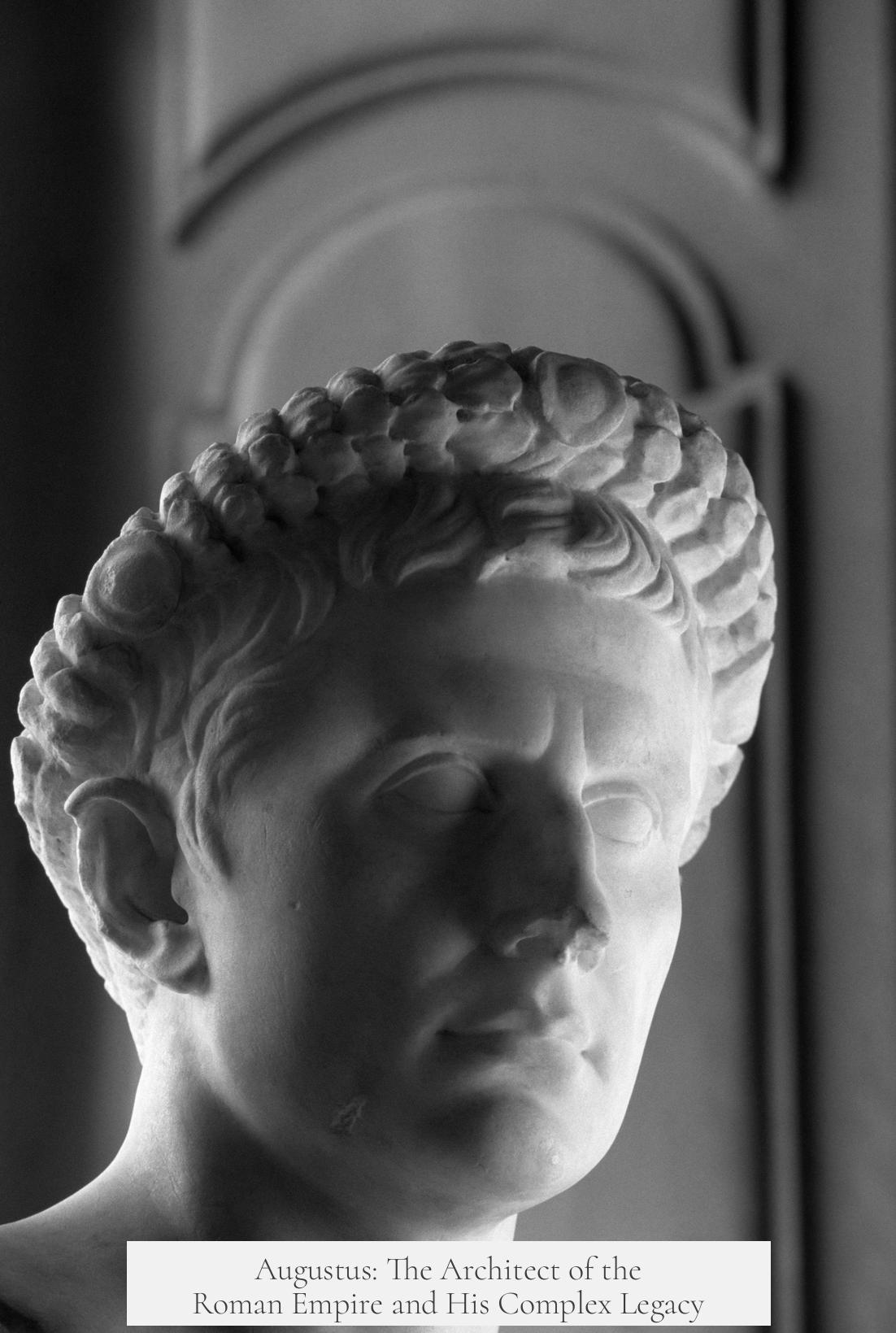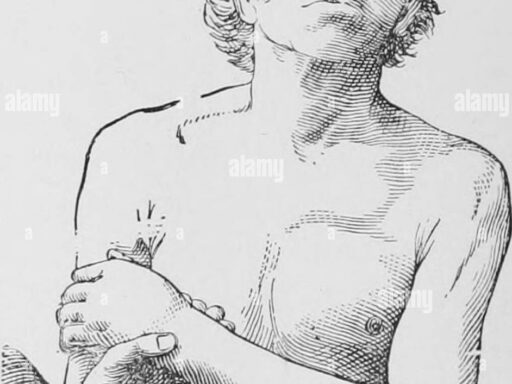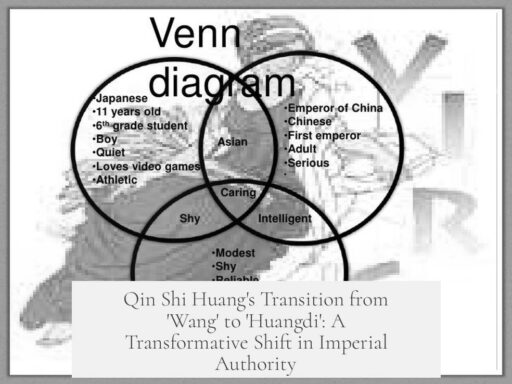Augustus is regarded as a highly effective emperor who transformed Rome from a republic into a stable empire, initiating nearly two and a half centuries of peace known as the Pax Romana. His rule marks the end of prolonged instability and civil wars in the Late Republic. Augustus founded the Roman Empire and established a political system called the Principate, which maintained the façade of republican institutions such as the Senate while concentrating real power in his hands.
Under Augustus, the empire saw significant reforms. He reduced the size of the military and secured soldiers’ loyalty directly to Rome by paying those with over 20 years’ service pensions. Augustus expanded and fortified the empire’s borders, particularly along the Danube and Rhine rivers, halting further advances north. His diplomatic efforts with Parthia stabilized the eastern frontier, including regaining Roman legionary standards previously lost.
Augustus restructured taxation and funded many public works out of his personal wealth. He also created the Praetorian Guard, a unit entrusted with protecting Rome and himself. The wealthy province of Egypt was formally incorporated into the empire, enhancing Rome’s resources.
Despite his achievements, Augustus faced criticism for ruthless actions during the Second Triumvirate, where political enemies were executed, and their properties seized. However, later archaeological evidence indicates a modest personal lifestyle, suggesting he maintained personal restraint even as the supreme ruler.
Augustus prepared for succession by adopting Tiberius, aiming to prevent future power struggles after his death. This foresight helped maintain imperial stability beyond his reign.
| Aspect | Impact |
|---|---|
| Political Structure | Maintained republican institutions while holding supreme power |
| Military Policy | Reduced army size; secured loyalty to Rome; fortified borders |
| Peace and Stability | Initiated Pax Romana lasting nearly 250 years |
| Succession | Adopted Tiberius to avoid succession crises |
| Reforms | Taxation and major construction projects |
- Augustus created the Roman Empire and ended civil wars.
- He established the Principate preserving republican appearances.
- Military reforms secured soldier loyalty and stable borders.
- Introduced Pax Romana, a long era of peace and stability.
- Planned succession to avoid future conflict by adopting Tiberius.
How Was Augustus as an Emperor? A Deep Dive into Rome’s First Princeps
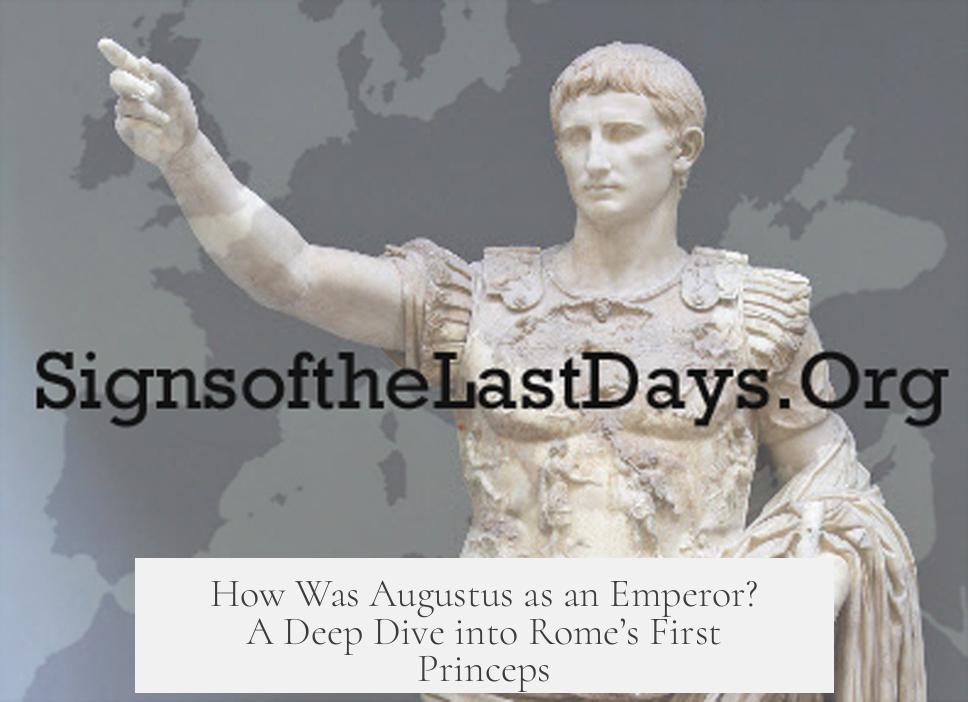
Augustus was a brilliant and transformative emperor who laid the foundation for the Roman Empire, ended decades of chaos, and introduced a long era of peace and prosperity. But what made Augustus stand out in a sea of ancient rulers? Let’s dig into his reign to see why history remembers him as both a wise leader and a man of contradictions.
First, it’s essential to get the context of his achievements. Before Augustus, Rome was not an empire but a Republic, a messy one at that, roiled by civil wars and political instability. Augustus was the architect who transitioned Rome from this fragmented Republic to a cohesive Empire.
The Man Who Created the Roman Empire
Augustus didn’t just inherit an empire—he created it. Up until his time, Rome was a Republic governed by elected magistrates and a Senate, plagued by factional violence. Augustus established the Roman Empire, a new political order where he held ultimate power, yet — and this is key — he maintained the pretense of old Republican institutions.
This balance ushered in the famed “Principate” system. Augustus styled himself as the “first among equals,” meaning he wasn’t a king in name but ruled like one in practice. The Senate still convened, but real power rested with Augustus. The illusion kept the Roman elites content while Augustus subtly controlled everything.
Ending the Chaos: From Civil War to Pax Romana
Before Augustus, Rome was a mess: a series of brutal civil wars shredded the Republic’s fabric. Augustus ended all that turmoil. His reign started the Pax Romana, or Roman Peace, a roughly 250-year span of relative calm and stability across the Empire. Imagine a nation tired of chaos finally getting a long vacation from war—and that’s what Augustus gave Rome.
This period was golden for the Romans. Trade flourished, roads and cities thrived, and arts and culture blossomed. A calm empire let its citizens breathe, and that peace largely came from Augustus’ careful balancing act of power and politics.
Smart Politics: Keeping the Senate—Mostly—Happy
Augustus chose not to abolish the Senate completely. Instead, he kept the Senate intact but under his thumb. It was a clever political move. The Senate felt respected, yet Augustus controlled military and financial power.
His title “Princeps” (“first citizen”) implied modesty, but his actual power was absolute. This blend helped him stay popular with Rome’s upper classes, who were wary of outright monarchy but pleased with renewed stability and status.
Planning Ahead: Avoiding Succession Chaos
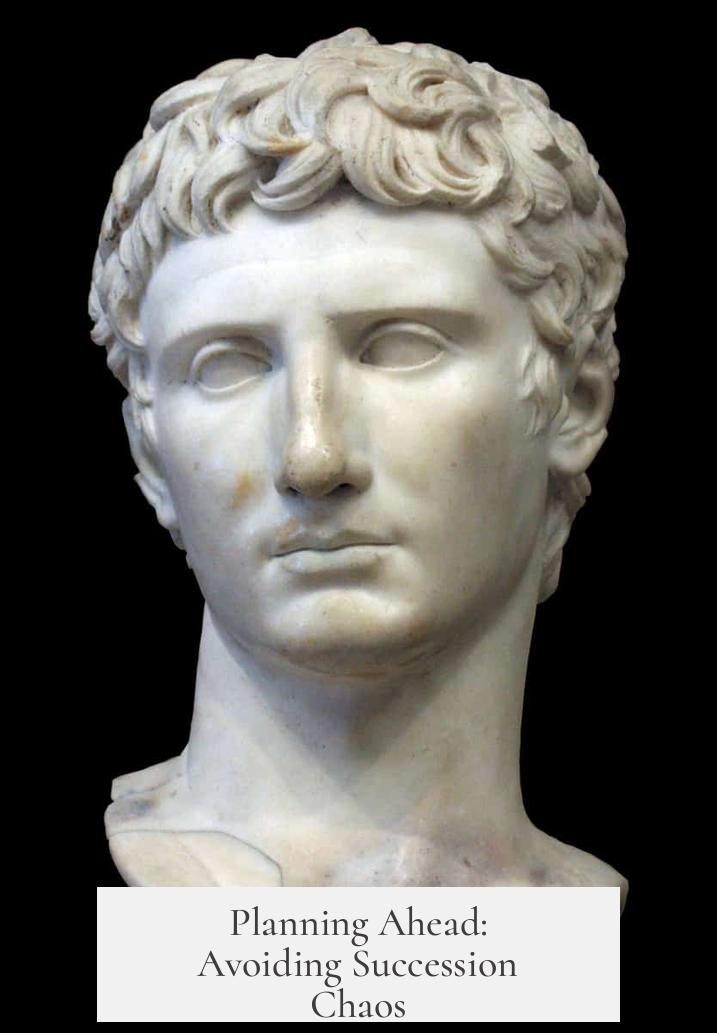
One thing that often dooms empires is shaky succession after the ruler’s death. Augustus foresaw this problem. He carefully arranged for his adopted son and trusted ally, Tiberius, to succeed him. This adoption wasn’t just a formality—it was a political masterstroke to ensure peace would outlive Augustus himself.
Reforms and Public Works: Fixing Rome Inside and Out
Augustus was no mere figurehead. He reformed Rome’s twisted tax system, making it more efficient and fair. Many construction projects transformed Rome—the famous “I found Rome a city of bricks and left it a city of marble” line often attributed to Augustus holds truth. These projects included temples, roads, and monuments, many built using his personal fortune. Talk about putting your money where your mouth is!
Military Mastery: Loyalty, Borders, and the Praetorian Guard
Augustus was practical with the military too. He recognized that a massive army loyal to individual generals rather than Rome itself was dangerous. So, he shrank the army and rewarded soldiers who committed long service, aligning their loyalty to the Empire, not their commanders.
He fortified Rome’s borders, especially along the Danube and Rhine rivers, drawing a clear defensive line. No need to conquer beyond those natural boundaries. His diplomacy with Parthia — Rome’s major rival — stabilized the eastern border. Impressively, he got back the legionary standards lost decades earlier, a huge symbolic victory.
To protect Rome itself, Augustus created the Praetorian Guard—a 9,000-strong elite force. They were bodyguards but eventually became powerful political players in their own right. A smart move for immediate safety though maybe a mixed bag long-term!
Adding Egypt to the Empire’s Rich Tapestry
Augustus also formally annexed Egypt, Rome’s richest client state, into the Empire. Its vast grain supplies and wealth massively boosted Roman prosperity. Controlling Egypt directly gave Augustus and Rome economic muscle unmatched elsewhere.
Flaws and Controversies: Not All Sunshine
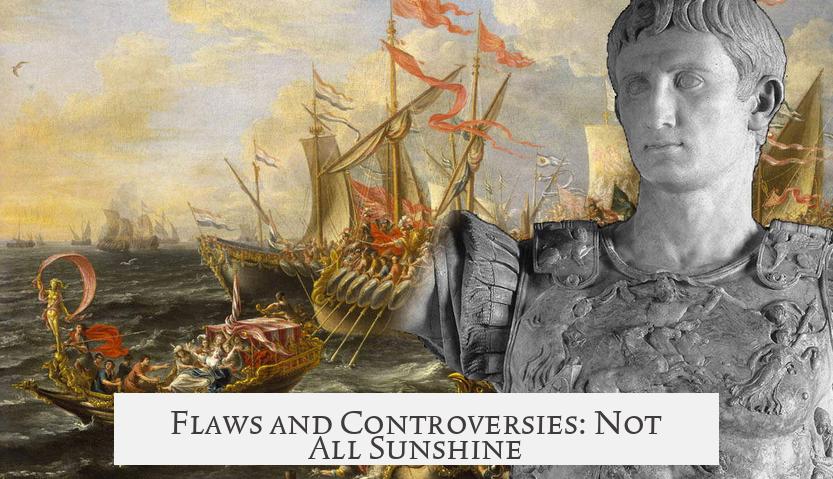
It’s not all roses. Augustus came to power through force and ruthless politics. During the Second Triumvirate, before he was emperor, he engaged in proscriptions—executions of political opponents with confiscated properties. This dark phase casts a shadow on his legacy, reminding us that his rise wasn’t purely peaceful or ethical.
The Man Behind the Crown: Modesty Amid Power
Archaeological digs of what’s believed to be Augustus’ home reveal modesty. His house was a typical Roman abode. Despite staggering power and riches, Augustus avoided flamboyant displays of luxury. A “pretty good guy for a supreme ruler,” some might say. A telling detail about the complexity of his character.
So, How Was Augustus as an Emperor?
He was a revolutionary yet careful leader who changed history by building the Roman Empire. Augustus ended chaos, created 250 years of peace, reformed taxes, improved infrastructure, and instituted smart military policies. His political cunning allowed him to maintain traditional institutions while holding absolute power.
He was not without flaws, especially early on, but his reign set a new standard for leadership—balancing power with restraint, innovation with tradition. For anyone wondering how to rule effectively while keeping a nation stable, Augustus provides a compelling blueprint.
In short: Augustus is not just remembered as Rome’s first emperor but as its greatest architect of order, peace, and enduring legacy. So next time you hear “Roman Empire,” remember it all started with a man who knew how to play the long game—Augustus.
How did Augustus manage to end the civil wars and bring peace?
Augustus ended years of civil wars by defeating rivals and stabilizing Rome. His rule began the Pax Romana, a long-lasting era of peace and stability that lasted nearly 250 years.
What was Augustus’ political approach as emperor?
He maintained the illusion of the Republic by keeping the Roman Senate and calling himself “first among equals.” This helped the upper classes accept his power while he ruled as the de facto emperor.
How did Augustus handle the Roman military and borders?
Augustus reduced the army size to secure loyalty to Rome, not generals. He expanded the empire’s borders south of the Danube and set stable borders with Parthia. He also created the Praetorian Guard to protect Rome.
What reforms did Augustus implement to strengthen the empire?
He reformed the tax system and funded many public buildings with his own money. He also incorporated Egypt fully into the empire, increasing its wealth and resources.
Did Augustus face criticism for his rise to power?
Yes, criticisms focus on his actions during the Second Triumvirate when many enemies were killed and had their property seized. These acts helped him secure power but remain controversial.
